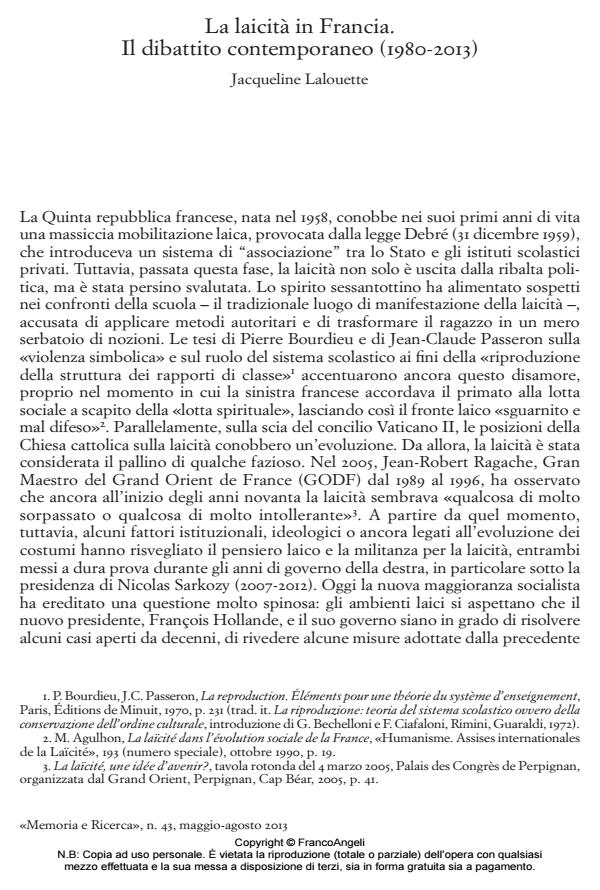Laicity in France. The contemporary debate (1980-2013)
Journal title MEMORIA E RICERCA
Author/s Jacqueline Lalouette
Publishing Year 2013 Issue 2013/43
Language Italian Pages 20 P. 25-44 File size 141 KB
DOI 10.3280/MER2013-043003
DOI is like a bar code for intellectual property: to have more infomation
click here
Below, you can see the article first page
If you want to buy this article in PDF format, you can do it, following the instructions to buy download credits

FrancoAngeli is member of Publishers International Linking Association, Inc (PILA), a not-for-profit association which run the CrossRef service enabling links to and from online scholarly content.
Called «laical» in the constitutions of the Fourth and Fifth Republic, France is periodically animated by wide and passionate debates about laicity, a term considered by different juridical and philosophical points of view. Among the polemics, we remind the agreement (concordato), that is operative too in Alsace-Lorraine - because these regions were Germans when a new law to separate State and Church was approved - and the private schools (previously called «free»), that obtain important public founds according to the Debré law of 31 december 1959, a norm never accepted by the most inflexible laicist exponents. From the 1980s, the debate about laicity refers above all the presence of Islam in France: the dressing of the headscarf or burqa, the consumption of meat halal, the construction of mosques, and so on. Extremely hostile towards muslims, radical right movement presents itself as a great defender of laicity. Today, further problems foment the debate as the trans- formation of social customs or the bioethic issues - euthanasia, stem cells, gay marriage, and continually there is a fight between religious leaders and pro-laicity groups. Morover, there is a link between laicity and feminist associations, that consider the religions largely guilty of discriminations suffered by women.
Keywords: French Republic, concordato, school, Islam, ethics, women.
Jacqueline Lalouette, La laicità in Francia. Il dibattito contemporaneo (1980-2013) in "MEMORIA E RICERCA " 43/2013, pp 25-44, DOI: 10.3280/MER2013-043003